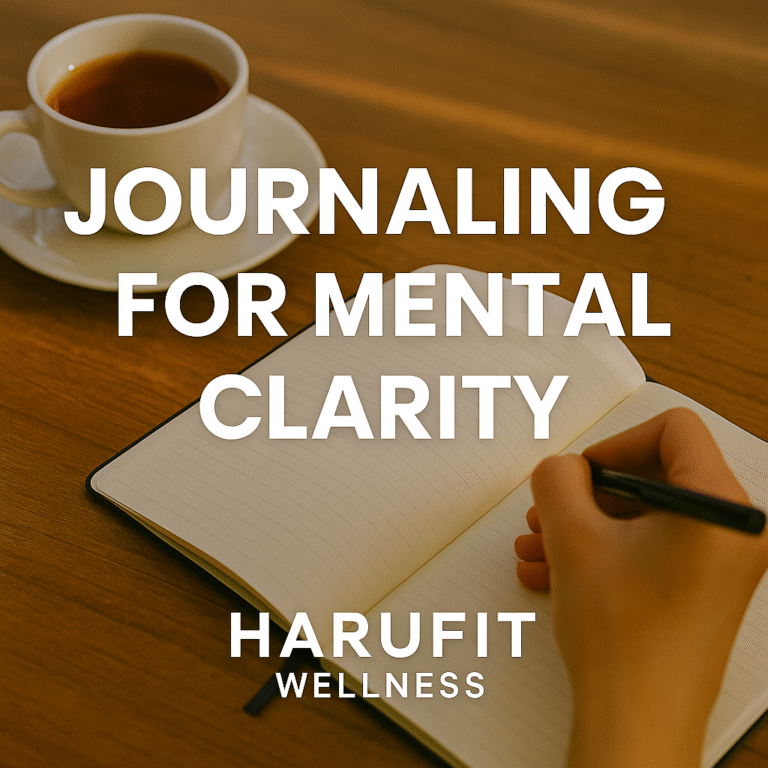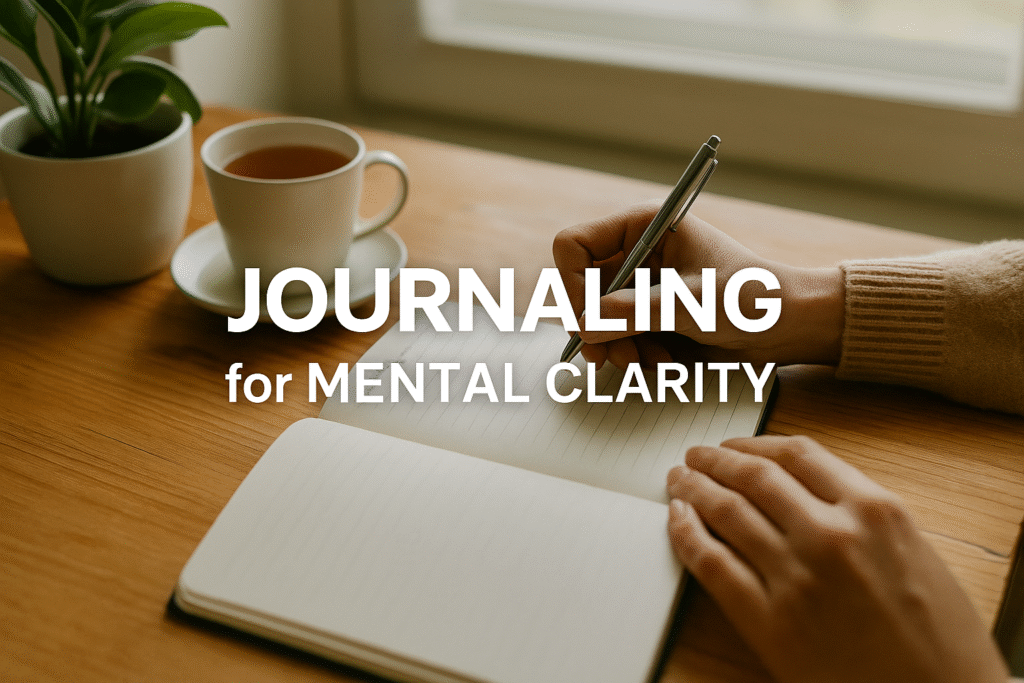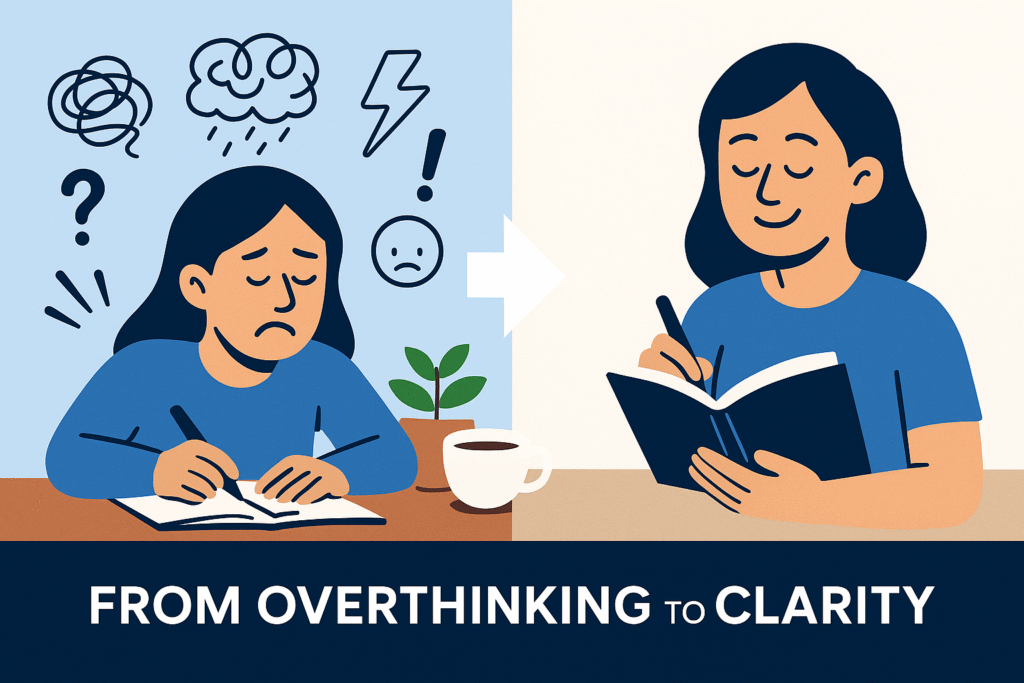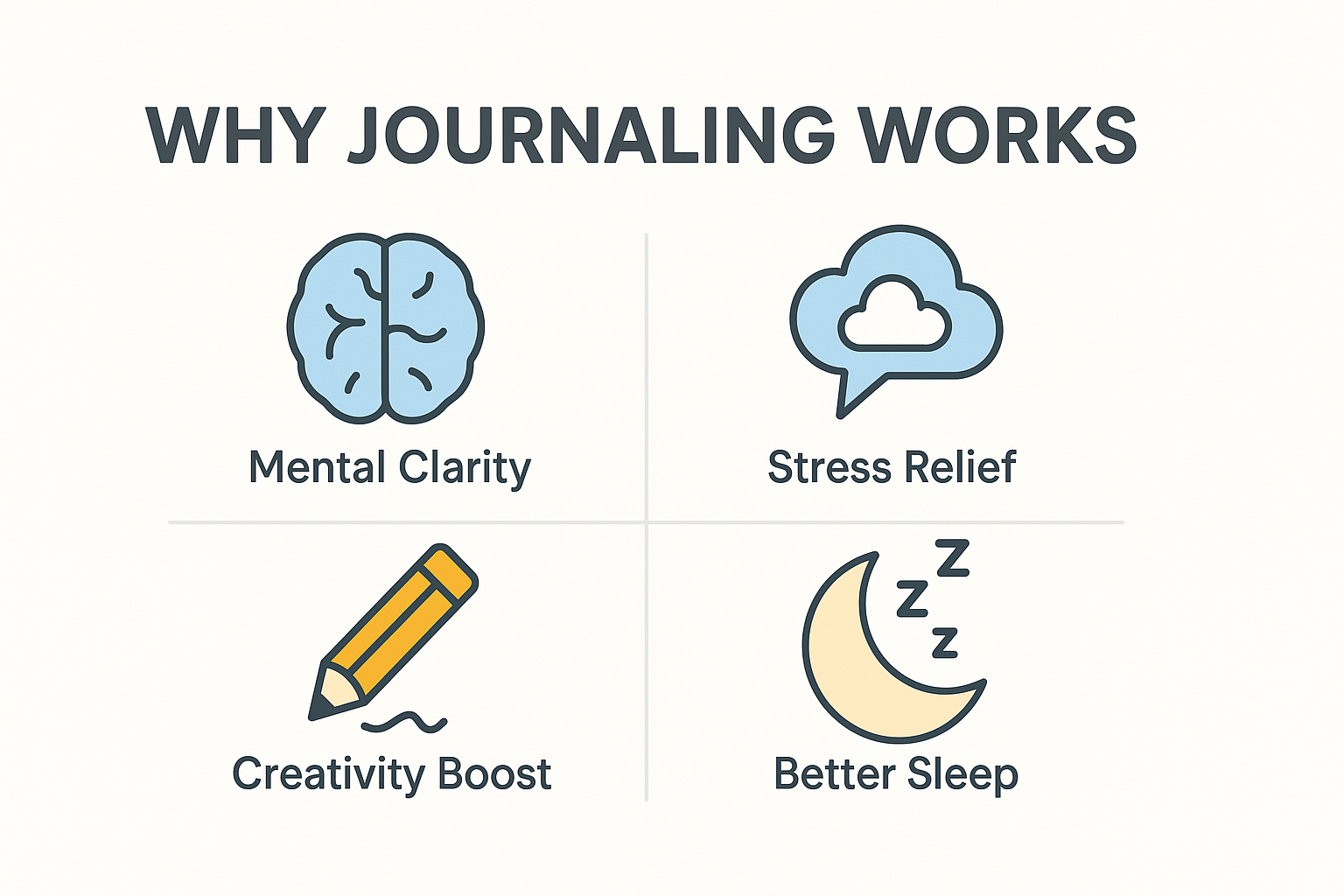Journaling for Mental Clarity: A Simple Self-Care Practice

Journaling for Mental Clarity — HARUFIT Wellness.
This post contains affiliate links. As an Amazon Associate, I earn from qualifying purchases made through these links.
This helps support our content creation at no additional cost to you.
We only recommend products we genuinely believe in and use ourselves.

🧠 When Your Mind Won’t Quiet Down
Your mind races at 3 AM. Thoughts jump from tomorrow’s presentation to last week’s awkward conversation. This creates an exhausting mental loop that won’t stop.
Sound familiar? You’re not alone. Millions of Americans face this daily stress. The solution? Journaling for mental clarity has emerged as one of the most effective self-care practices. Moreover, this simple journaling for mental clarity approach isn’t just helpful—it’s proven to heal both mind and body.
📚 The Research Behind Journaling for Mental Clarity
A major 2022 study found something important. Journaling for mental clarity and therapeutic writing cut mental health symptoms by 5%. This is a meaningful improvement. Interestingly, the difference? Furthermore, this journaling for mental clarity practice costs about $5 for a notebook. Compare that to $150 per therapy session.
What Happens During Journaling for Mental Clarity 🖋️
When you practice journaling for mental clarity, you activate multiple brain regions at the same time. You’re literally building stronger highways between thoughts and emotions.
Here’s what journaling for mental clarity does:
- ✨ Brain flexibility in action — Specifically, your brain physically rewires itself
- 🎯 Better focus — Additionally, handwriting turns on your brain’s built-in filter
- 💪 Physical changes — Most importantly, regular practice increases brain matter density

🎯 Three Easy Writing Techniques
🌊 Free-Writing
First, set a timer for 10-15 minutes. Then write whatever comes to mind. This expressive writing technique was developed by psychologist James Pennebaker. It helps your brain sort through mental clutter.
🙏 Gratitude Practice
Instead of just listing items, write about why things matter to you. As a result, this deeper thinking rewires your brain toward positive patterns. It also boosts clarity.
🧩 Problem-Solving Through Story
When you’re stuck, try this method. Write about problems as if they’re happening to someone else. Consequently, this approach creates mental space. It reveals hidden solutions.
💡 Bonus: Check out our guides on better sleep habits for mental wellness and balance training for overall health for complete wellness.
⚡ Physical Benefits of Writing for Mental Health
Journaling for mental clarity affects your physical health too. Studies show therapeutic writing reduces anxiety, stress, and depression symptoms after just one month.
The Mind-Body Connection 🔗
Mindfulness journaling activates your vagus nerve—the communication highway between brain and body. This triggers your “rest and digest” response:
✓ Lowers stress hormones like cortisol
✓ Reduces inflammation throughout your body
✓ Improves immune function (fewer sick days!)
✓ Regulates heart rate and blood pressure
📱 Pen and Paper vs. Typing
Handwriting activates more brain regions than typing, creating stronger memory connections. Plus:
- 🎨 Slower pace = deeper thinking
- 🤲 Physical engagement reinforces learning
- 🧘 Natural meditation through pen rhythm
- 📵 Zero distractions from notifications
🚀 How to Build Your Practice
📅 Week 1-2: Getting Started
- ⏰ 5 minutes max — First, set a timer and stop when it goes off
- 📝 Write anything — Next, make this practice feel normal, not scary
📅 Week 3-4: Adding Structure
- 💭 Try prompts: “Right now I’m feeling…” or “Today was hard because…”
- 📈 Celebrate small wins — Remember, even one sentence counts
📅 Month 2+: Advanced Methods
- 😊 Morning gratitude for good vibes
- 🧠 Problem-solving sessions when stuck
- 🌟 Evening thoughts to process the day
The secret: Better to practice journaling for mental clarity one sentence daily. Don’t try three pages once a week.
🛠️ What You Need
Moleskine Classic Notebook – Specifically, dotted pages give structure without being rigid. It’s perfect for journal writing.
Check it out on Amazon (affiliate link)
✏️ Quick Setup
- Find your spot — Initially, choose a quiet corner without interruptions
- Pick your time — For example, morning for clarity or evening for processing
- Keep it simple — Most importantly, no rules, just honesty

📖 Real Success Story
Marcus is a 45-year-old project manager from Denver. Initially, he was unsure about this practice. He said, “I’m not a ‘dear diary’ kind of guy.”
However, work stress was wearing him out. So he tried this approach. Just three sentences of expressive writing before bed for two weeks.
Within a month, Marcus slept better through his daily routine. Then, six months in, this therapeutic writing practice showed him something important. He learned which meetings drained him versus energized him. Subsequently, he used those insights to change his role. He ended up earning a promotion.
“Journaling for mental clarity saved my sanity. And probably my career.”
💫 Start Your Journey Today
This practice is a skill you can learn. Furthermore, the benefits of writing for mental health are backed by solid research and real success stories.
Why this works:
- ✅ Costs under $10 to start
- ✅ Works with any schedule (specifically, even 2 minutes of expressive writing helps)
- ✅ Gets better over time
- ✅ Research-backed benefits
Finally, tonight, grab any paper. Write three things about how your day felt. That’s your first step toward journaling for mental clarity.
Ready to begin journaling for mental clarity? Remember, the best journal is the one you actually use.



Comments